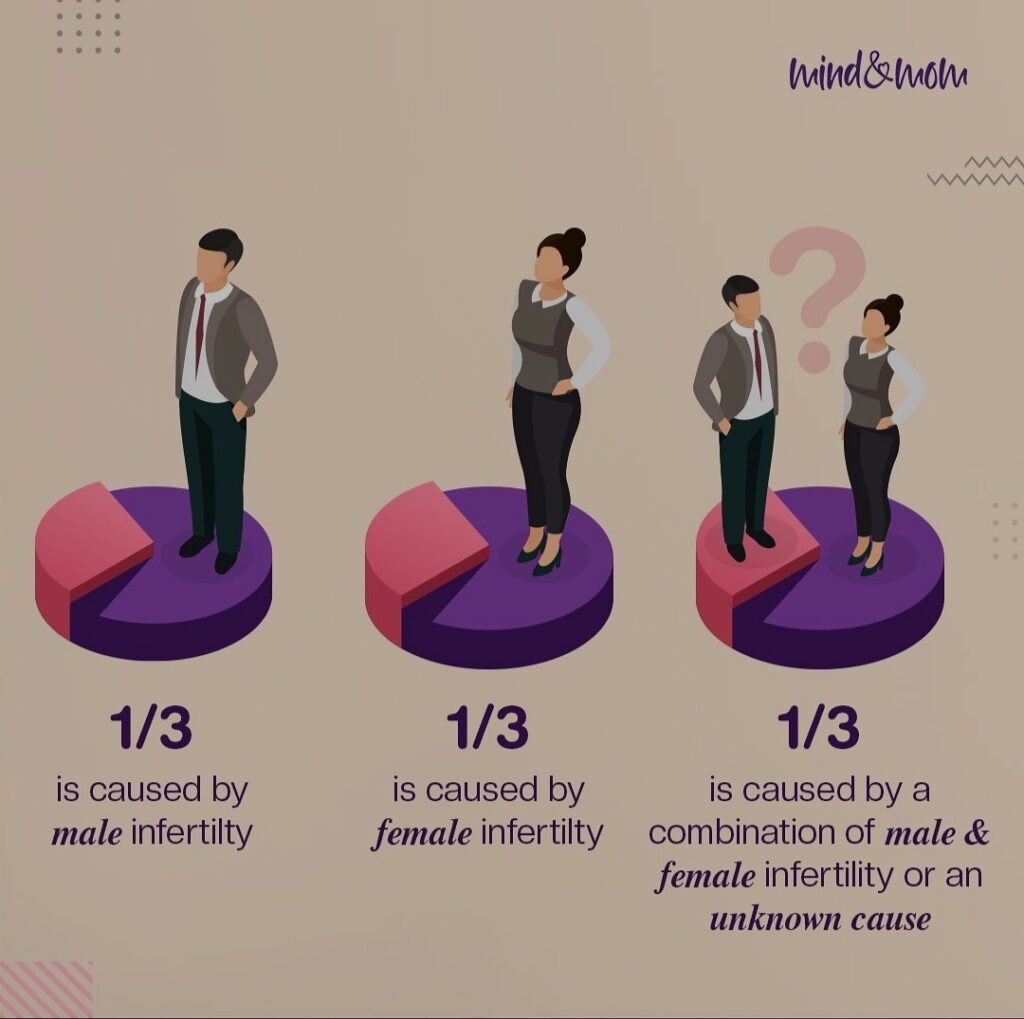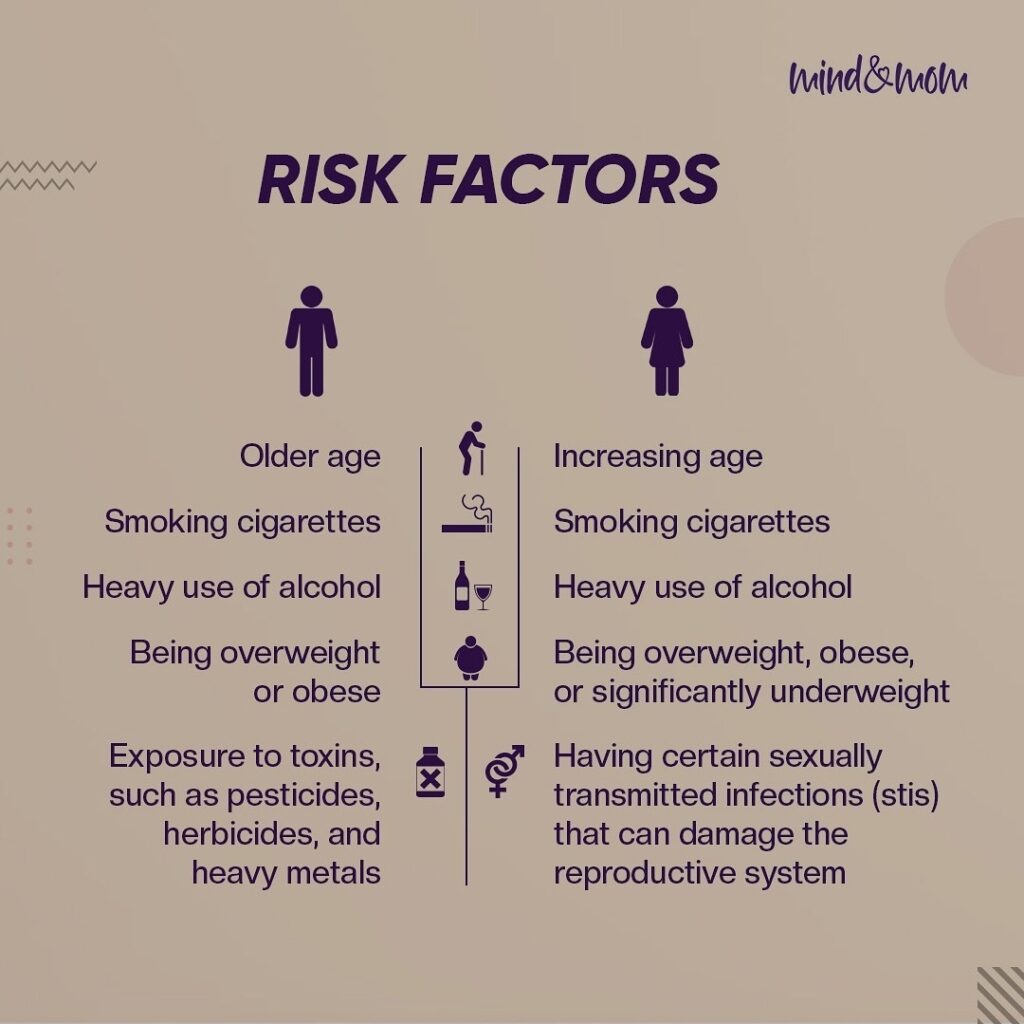“15% of reproductive aged couples worldwide are affected by infertility – WHO reports.”
Infertility is more common than people think. In fact, most of us know someone struggling with infertility. The numbers have dramatically increased than it was 20 or 30 years ago. What is scary is, evidently it will continue to rise. It is no longer an urban phenomenon, nor is it confined to women.
The Total Fertility Rates (TFR), an average number of children per woman has further declined from 2.2 to 2.0 at the national level – according to NHFS5 phase II findings, 2021. 30% of fertility problems are due to the man, 30% due to the woman and 30-40% are due to both or unknown reasons.

So what's causing the rise? Is it scientific, social or a bit of both?
A 38-year study showed that sperm count has declined significantly since the 1970s, which suggests both environmental and lifestyle factors. Humans could become extinct if sperm counts in men continue to fall steeply at current rates, a doctor has warned (Though not in the near future!)
Let us dive into analyzing factors that are contributing to the global acceleration of infertility!
1. Choices :
Age plays a big role in conception. A few decades ago, most women had their first child at about 21. Today, that age is closer to 26 or 27 on an average. Many couples prioritize education and careers and wait longer to start their families. For couples who are under 30 and generally healthy, 20 to 37 percent are able to conceive in the first three months of trying. After age 30, a woman’s chances of getting pregnant start dropping quickly with each year as the number of eggs available decreases each day; thus increasing their chance of infertility.
For those who are planning for pregnancy in your 30s, consult with your gynecologist sooner than later. When it comes to conception, timing is everything.
DO YOU KNOW THE FIVE AGES OF FEMALE FERTILITY?
Age 14: most women have begun to ovulate
Age 21: female fertility is at or reaching its peak
Age 28: female fertility has begun to decline
Age 35: female fertility drops steeply
Age 42: the chance of becoming a biological mother is nearly zero
2. Lifestyle :
Making some healthy lifestyle changes can increase your chance of becoming pregnant and having a healthy baby.

A healthy baby starts with healthy sperm and healthy eggs. Smoking makes people vulnerable to infertility. Men who smoke can have problems getting and keeping erections and damage the quality and quantity of sperms. Women who smoke in pregnancy are more likely to have a miscarriage than non-smokers. Every cigarette smoked increases the risk of miscarriage by one percent. Babies have an increased risk of low birth weight, being born prematurely and having birth defects and also increases the risk of ectopic pregnancy. The good news is that the effects of smoking on eggs and sperm and fertility are reversible. The only way to protect yourself and your unborn baby from harm is to quit. Remember: ‘Smoking causes cancer; smoking kills.’


- Heavy drinking increases the time it takes to get pregnant and can affect a developing baby’s health. For woman planning a pregnancy, not drinking alcohol is the best option because there is no ‘safe’ limit. In men, excessive alcohol may lead to difficulties maintaining an erection, impaired ejaculation and reduced sperm quality.
- Women and men can improve their chances of a pregnancy and give their baby the best start in life by having a healthy diet, well before a baby is conceived. Being a healthy weight can improve the chances of a pregnancy because it improves the health of sperm and eggs, prevents erection problems and helps balance men’s and women’s hormones. As we know, eating healthy food and moving more is the best way to drop a few kilos if you’re above the healthy weight range. Being underweight is also associated with problems during pregnancy. Gaining weight is likely to improve fertility. Exercising regularly is also thought to help improve your chances of conceiving and improving your lifestyle.


- Recreational drugs such as marijuana and cocaine may interfere with ovulation and/or the function of the Fallopian tube which carries the egg from the ovary to the uterus. The steroids, which are abused by some body-builders, inhibit the production of sperm and this may be permanent even if the drug is stopped. Non-steroidal anti-inflammatory drugs such as ibuprofen and aspirin can interfere with ovulation and implantation. Stay away from drugs of any sort if you are trying to get pregnant!
- Some women may have medical conditions that can affect their fertility which they may not be aware of when starting to try for a family. Long term conditions like PCOS, Thyroid and Endometriosis should be addressed before trying to conceive.


- Several recent studies have found links between the women’s levels of day-to-day stress and lowered chances of pregnancy. Everyone gets stressed once in a while. So if you’re frazzled for a few weeks at work or feel anxious about a big move, it will not hurt your baby-making abilities. But if your stress goes on for a long time or if you’re dealing with a major upheaval, then your ovulation might get thrown out of whack. It is natural for women who try to get pregnant without success to be stressed. Your body is smart, it knows that (periods of stress) aren’t good times to have a baby. Try to understand that your body is not your enemy and try to talk to a therapist if you require help. Stressed women probably also have sex less often. And they may be more likely to smoke or drink too much alcohol or caffeine – behaviors that can hardly improve their odds.
3. Environment
Some chemicals can affect men’s and women’s reproductive health and may be the cause of infertility at times. They are called Endocrine disruptors (EDCs) and are chemicals that have the capacity to interfere with normal signaling systems in the body. Identify such EDCs and minimize your exposure to toxic chemicals. Chemotherapy and x-ray therapy for cancer can also be extremely toxic to sperm and eggs and can cause permanent infertility.
In spite of so much vagueness, there are steps you can take to safeguard your own fertility. Keep yourself healthy by improving your lifestyle. If you have had trouble achieving pregnancy and suspect that either you or your partner has an infertility problem, consult a fertility specialist without hesitation. Although infertility rates are increasing, there are also more choices available for people experiencing problems. With a consultation and certain tests, they can help you determine whether there is any issue of concern present and also advise you on the best method of action to achieve pregnancy.

Related: If you are trying to conceive, also read ‘How to know if you are ovulating?‘
If you need blogs on any topics related to infertility, let us know in the comments section!

